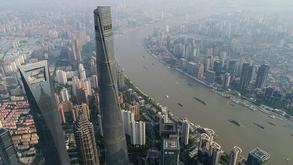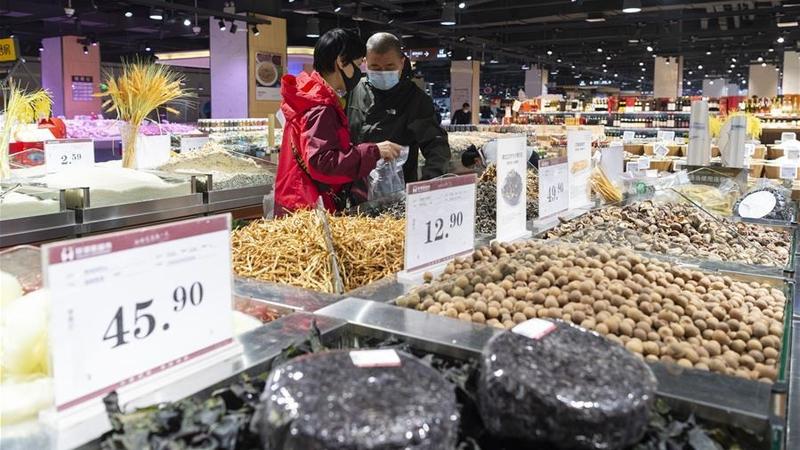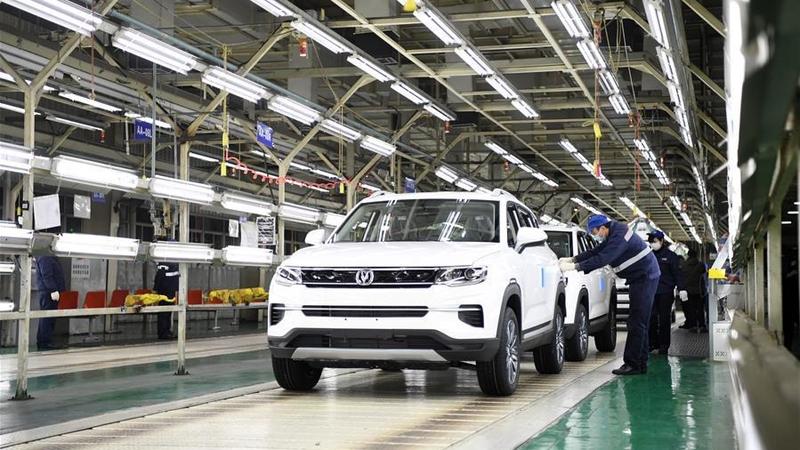 This undated photo shows a bird's-eye view of the Lujiazui financial center in Shanghai Pudong New Area. (PHOTO / XINHUA)
This undated photo shows a bird's-eye view of the Lujiazui financial center in Shanghai Pudong New Area. (PHOTO / XINHUA)
BEIJING - China's non-financial outbound direct investment (ODI) rose 1.8 percent year on year during the first two months, the Ministry of Commerce (MOC) said Thursday.
Non-financial ODI stood at 107.86 billion yuan (about US$15.5 billion) in the first two months, MOC Spokesperson Gao Feng said at a press conference.
Non-financial ODI stood at 107.86 billion yuan (about US$15.5 billion) in the first two months, MOC Spokesperson Gao Feng said
ALSO READ: China in action to stabilize foreign investment
Chinese companies increased investment in countries participating in the Belt and Road Initiative during the first two months, adding a total of US$2.72 billion of new investment in 48 countries, up 18.3 percent year on year.
China's investment mainly went into sectors including leasing and business services, wholesale and retail, manufacturing and mining, according to the ministry.
The value of newly signed deals rose 38.3 percent year on year to reach 215.03 billion yuan, with big projects taking the lion's share. The number of newly signed overseas projects with a contract value exceeding 50 million dollars came in at 115, up 29 from the same period a year earlier.
COVID-19's impact on consumption 'controllable'
The impact of the novel coronavirus outbreak on China's consumption is short-lived and controllable, as the resumption of business has accelerated, the MOC said.
 Citizens select products at a supermarket at Fancheng District of Xiangyang City, central China's Hubei Province, March 25, 2020. (XIE JIANFEI / XINHUA)
Citizens select products at a supermarket at Fancheng District of Xiangyang City, central China's Hubei Province, March 25, 2020. (XIE JIANFEI / XINHUA)
As of Sunday, about 97 percent of large farm produce wholesale markets had opened, while the work resumption rate of large supermarkets reached 96 percent, followed by 94 percent of vegetable markets and 90 percent of shopping malls, a survey by the MOC shows.
The average daily sales of 1,000 retail companies monitored by the MOC went up 5.6 percent in late February from the second 10 days in February, and further up 0.5 percent in the first 10 days in March and 0.8 percent in the second 10 days in March, the MOC said.
Domestic consumption is expected to steadily accelerate along with the further restoration of production and the order of everyday life, the MOC said.
China seeks to boost auto sales
A Chinese commerce official said Thursday that the country will encourage local authorities to to roll out measures to help stimulate auto sales.
 Staff members work at a production line of Yubei plant of Chongqing Changan Automobile Co., Ltd. in Chongqing, southwest China, Feb 18, 2020. (TANG YI / XINHUA)
Staff members work at a production line of Yubei plant of Chongqing Changan Automobile Co., Ltd. in Chongqing, southwest China, Feb 18, 2020. (TANG YI / XINHUA)
To cushion the short-term impact the coronavirus outbreak has caused on auto sales, a pillar of China's consumption, local authorities could encourage purchases of new energy vehicles and unveil auto replacement policies, Ministry of Commerce official Xian Guoyi said during an online news briefing.
Auto sales in the country fell 42 percent year on year during the first two months of the year, including a 79.1-percent plunge in February, as the epidemic disrupted business activities and kept buyers at home.
READ MORE: MOC: China's consumer market to bottom out by March
Xian said as of Tuesday, 94.7 percent of the country's 4S shops had resumed operation, with 61.7 percent of buyers coming back to market, according to a survey of 8,569 4S shops by the China Automobile Dealers Association.
The epidemic will not change the long-term sound growth of China's consumer market, which Xian said would be revived as business and life gradually recovered from the epidemic shock, while the effects of the country's consumption-encouraging policies filtered through.


